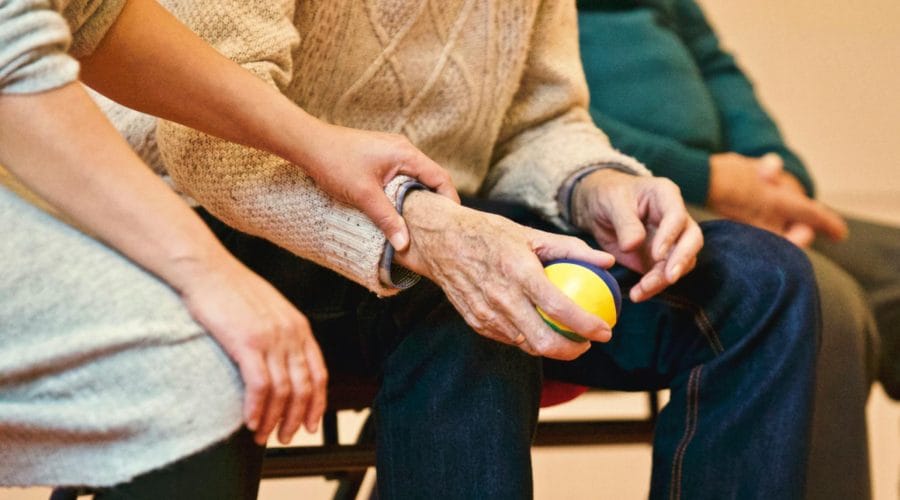Falls, often linked to the use of multiple medications, can lead to fractures, disability and death.

Older people with HIV who take multiple medications, especially anticholinergic drugs and sedatives, were more likely to experience frailty and were at higher risk for falls, according to findings from a Canadian study published in the journal AIDS.
Compared with their HIV-negative peers, people living with HIV are more prone to health problems as they age. Regardless of HIV status, frailty is a common syndrome among older adults that comes with an increased risk for poor health outcomes, including falls, cognitive impairment, hospitalization and death. Falls can cause bone fractures and lead to chronic pain and long-term disability. Signs of frailty include fatigue, low energy, weakness, reduced physical activity and unintentional weight loss.
Fall-related mortality among older adults has been climbing sharply, KFF Health News recently reported. According to the Centers for Disease Control and Prevention, more than 41,000 Americans over age 65 died from falls in 2023. Many experts think the increase could largely be attributable to rising use of medications such as benzodiazepines, opioids, antidepressants and gabapentin, which can cause drowsiness, decreased mental alertness, dizziness or poor coordination. Other contributing factors may include failing eyesight and the fact that improvements in medicine have enabled frailer and sicker people to reach advanced ages.
Frailty and falls are a concern for older people with HIV, who may take multiple medications to manage comorbidities, known as polypharmacy. One study found that older people with HIV were prescribed an average of 12 drugs in addition to their antiretrovirals. Another recent study found that those taking more meds had a slower walking speed—a sign of frailty—and were more likely to experience recurrent falls.
Alice Zhabokritsky, MD, of the University Health Network in Toronto, and colleagues, looked at the prevalence of polypharmacy, use of potentially inappropriate medications and use of anticholinergic drugs and sedatives and their association with the risk of frailty and falls in CHANGE-HIV, a Canadian cohort of people with HIV ages 65 and older.
Anticholinergic medications block acetylcholine, a neurotransmitter that relays signals from nerves to muscles and organs; it also plays a role in learning, memory and attention. This drug class includes some psychiatric medications and antidepressants as well as common over-the-counter meds such as the antihistamine Benadryl (diphenhydramine). Side effects may include decreased mental alertness and poor coordination, and they have been linked to frailty and falls.
The analysis included 440 participants on antiretroviral therapy; they were mostly white men with a median age of 69 years. In this cohort, 16% were classified as frail and 21% had experienced a fall within the past six months. More than half (54%) had polypharmacy, defined as using five or more drugs besides antiretrovirals, while 15% had severe polypharmacy, defined as using 10 or more additional meds. What’s more, 49% were using at least one potentially inappropriate medication. Further, 17% had a high anticholinergic burden, and 56% had high use of sedatives.
People with severe polypharmacy, a high anticholinergic burden or a high sedative burden were about three times more likely to experience frailty. What’s more, those with a high sedative burden or at least one potentially inappropriate medication were nearly twice as likely to experience falls.
Last year, Zhabokritsky’s team published another analysis of the same cohort, showing that frailty was not associated with prior advanced immune suppression, but it was more likely among people who were single or reported loneliness. “While nadir CD4 count did not correlate with frailty, being single and lonely did, highlighting the importance of recognizing and addressing these social vulnerabilities among people aging with HIV,” they wrote.The findings from the latest study suggest that medications should be reviewed regularly to ensure that older people with HIV are not taking drugs that are inappropriate or that they don’t—or no longer—need.
“It’s easy to start meds, but it often takes a lot of time and effort to have patients stop taking them,” Michael Steinman, MD, a geriatrician at the University of California San Francisco and codirector of the U.S. Deprescribing Research Network, told KFF Health News. He advises patients to ask their doctors if any of their medications could increase the risk of falls and whether there are alternative treatments.
By Liz Highleyman
Source : POZ
Get involved
Are you living with HIV/AIDS? Are you part of a community affected by HIV/AIDS and co-infections? Do you work or volunteer in the field? Are you motivated by our cause and interested to support our work?
Subscribe
Stay in the loop and get all the important EATG updates in your inbox with the EATG newsletter. The HIV & co-infections bulletin is your source of handpicked news from the field arriving regularly to your inbox.
